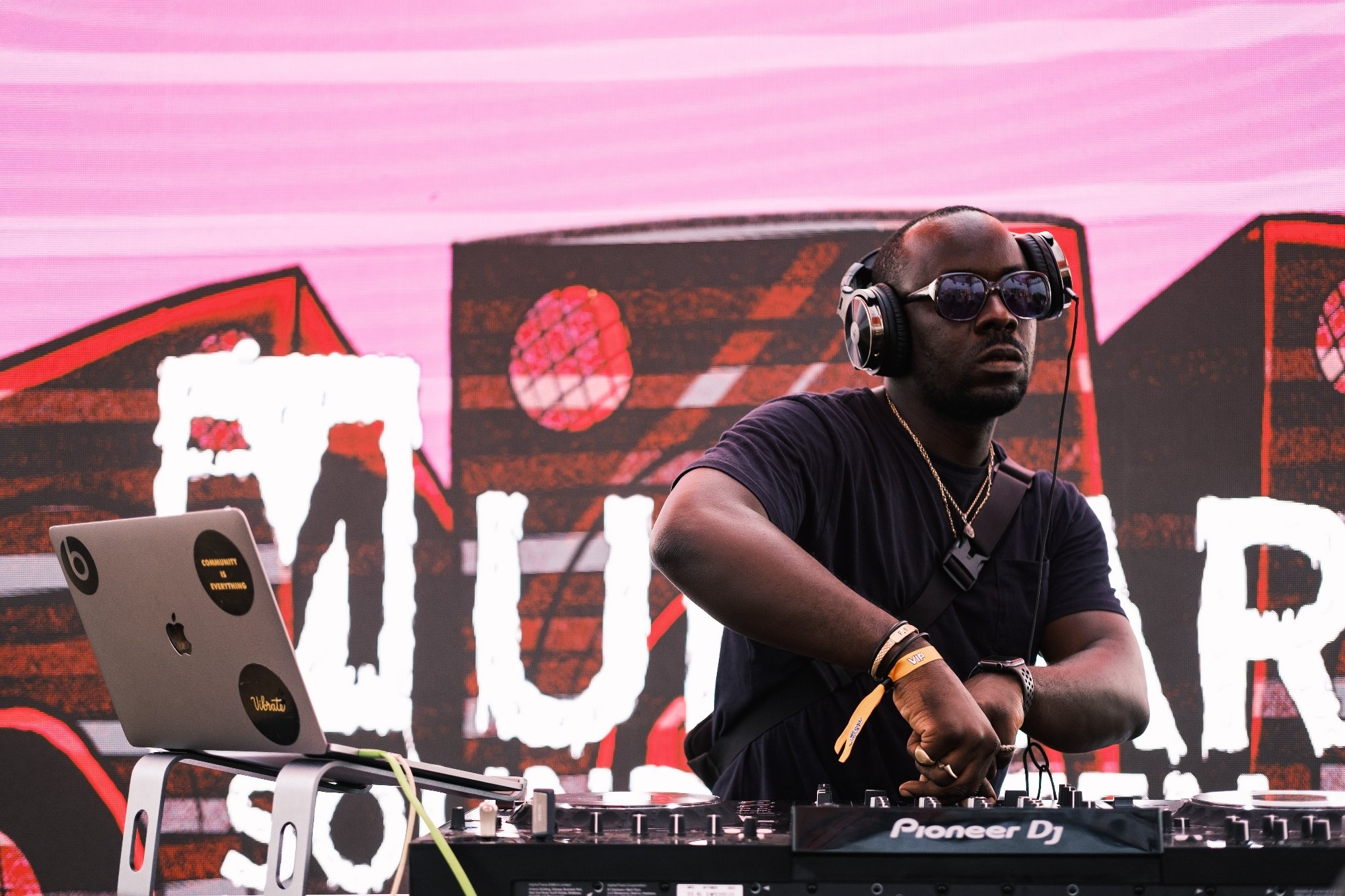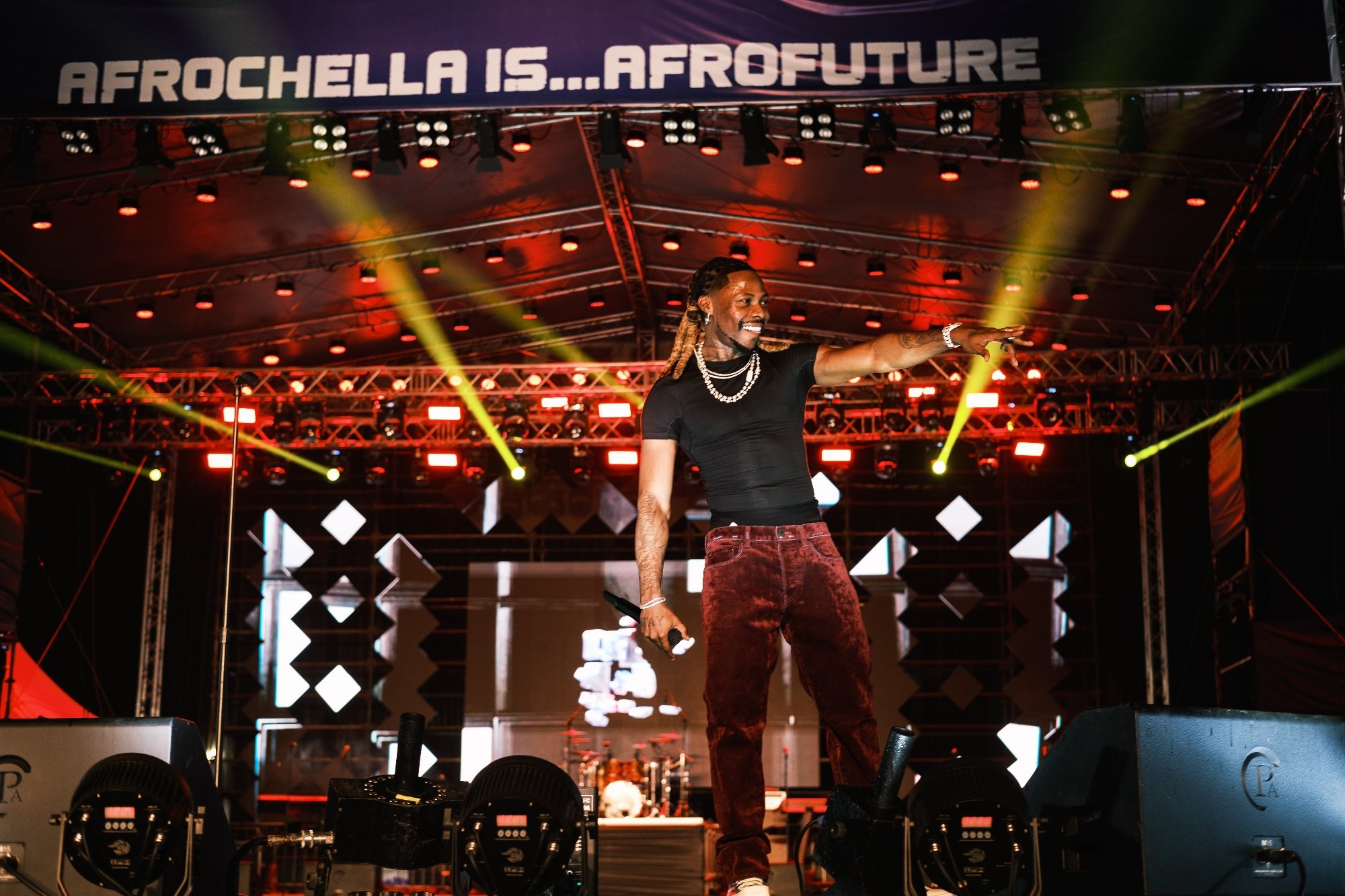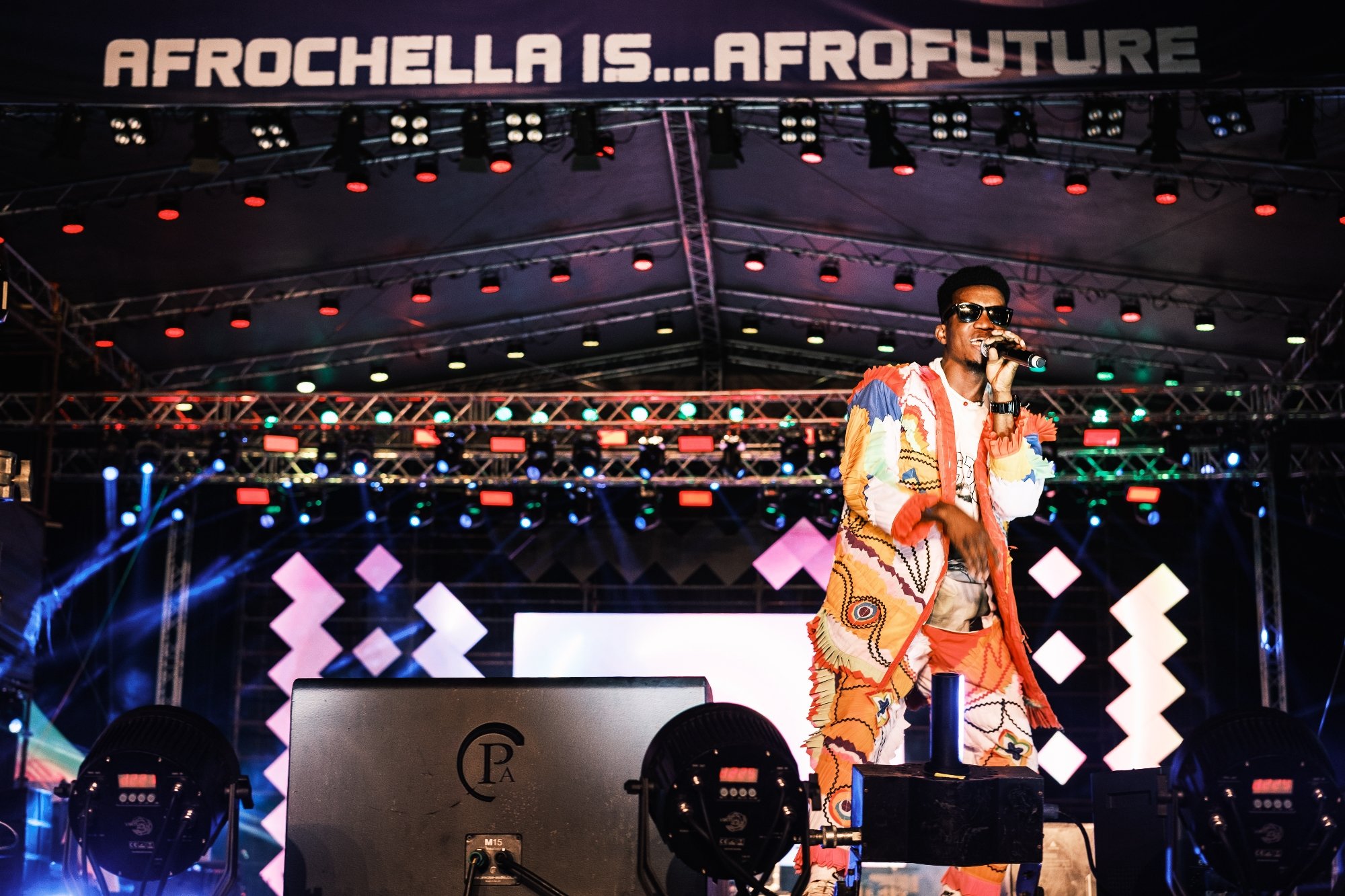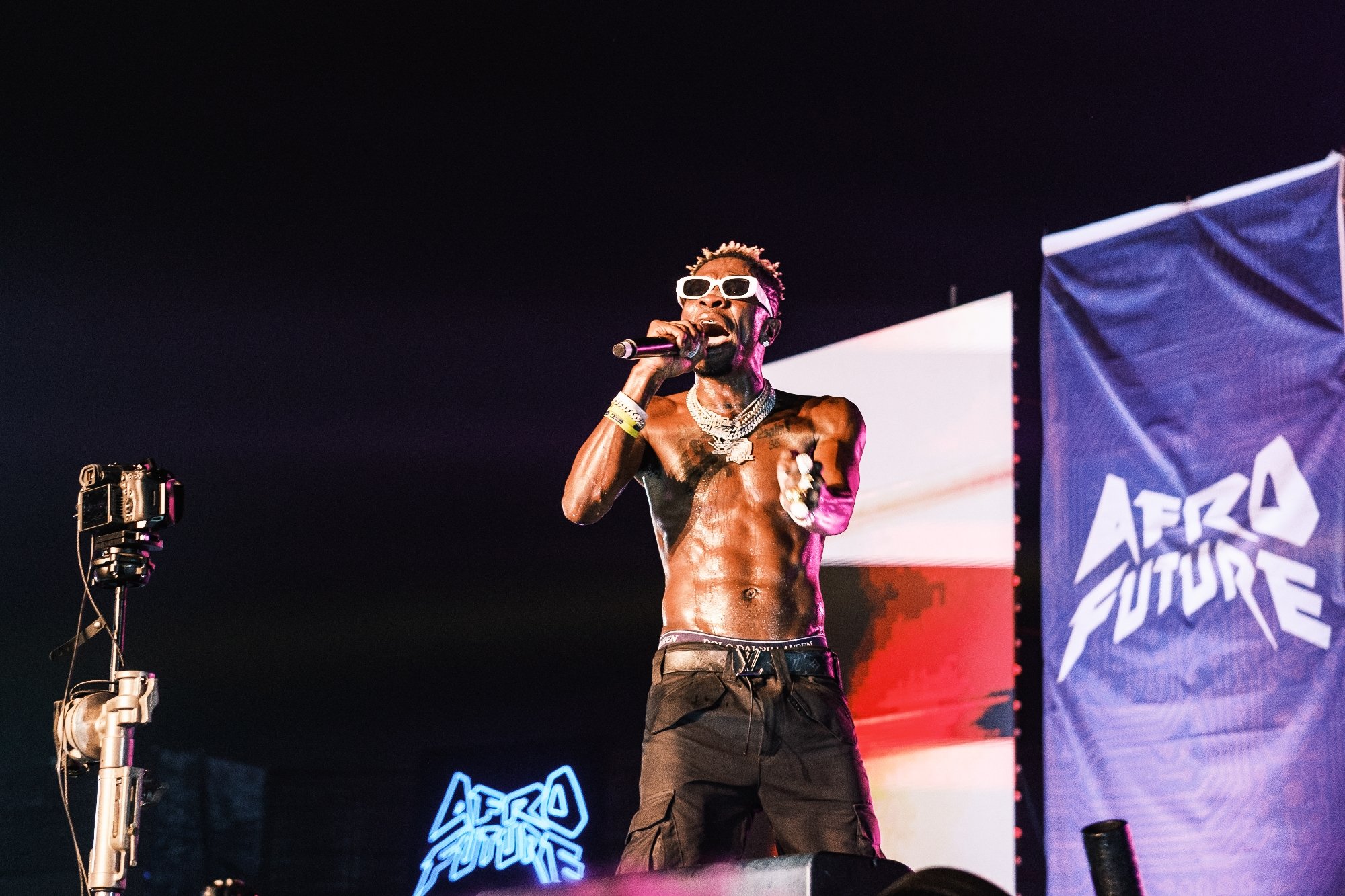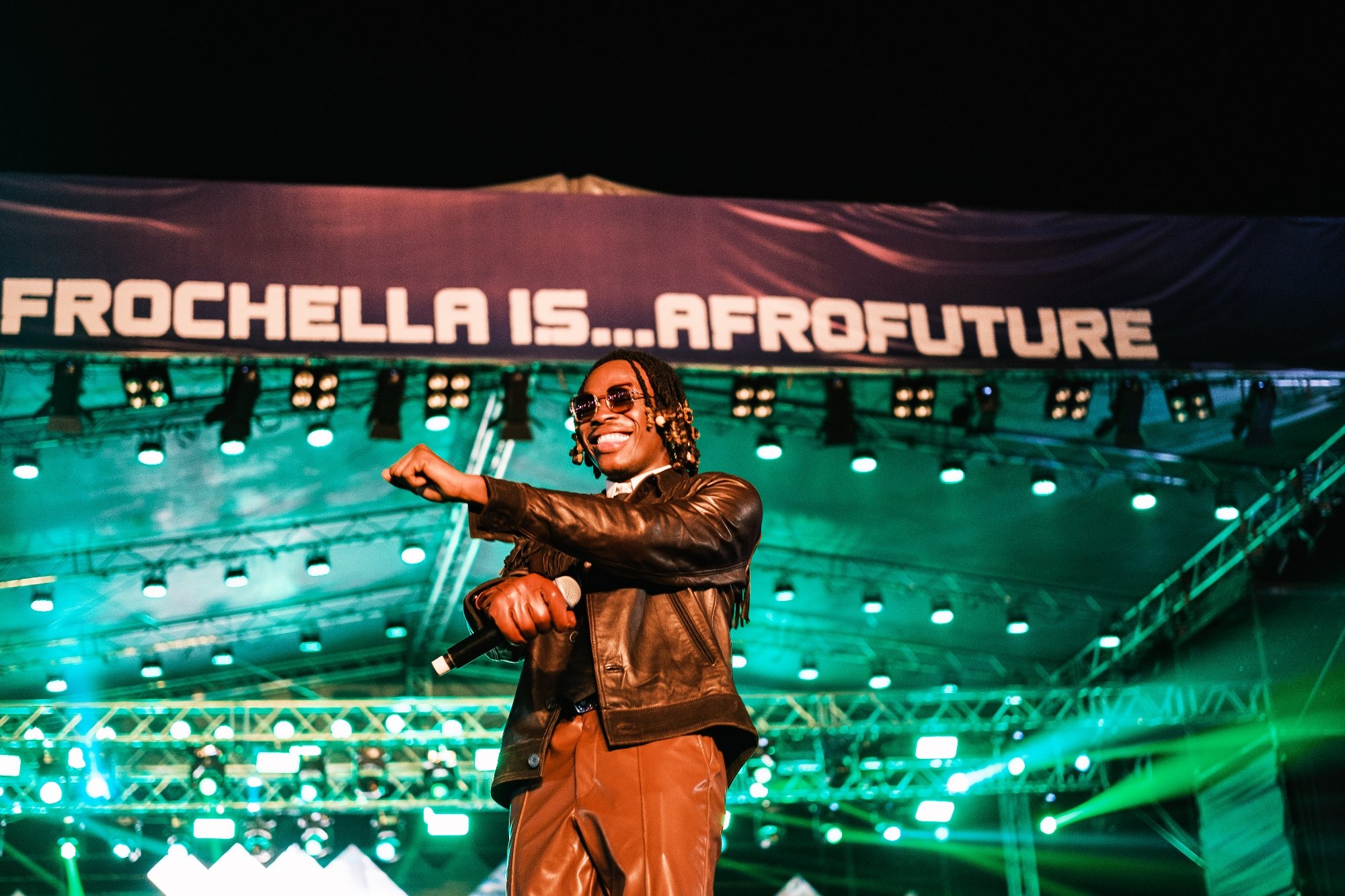Nataal’s report from the influential Ghanaian festival as it looks to the future
Outside of Accra’s El-Wak Stadium, the streets were filled to the brim. Afrochella festival-goers congested the concrete clad in their freshest outfits, wearing everything from tight-fitting leather to flowing kente cloth, sandals to Dr. Martens boots, their hair slicked down in clean buns or wound up in tight bantu knots. A distance away, we could hear the year’s hottest afrobeats and amapiano hits blaring from within the stadium, the beginnings of New York DJ Sydney Love’s set. And in the midst of it all, a band of young boys clad in masquerade dress - called fancy dress by Ghanaians - approached us. When we asked them why they had been dancing outside of the stadium, one of them told us, “We came so we could end up with something and get inside - but we don’t have tickets!”
Such was the pure anticipation surrounding Afrochella. Founded in 2017 by Abdul Karim Abdullah and Kenny Agyapong, the festival exists to display the beauty of Ghanaian talent while connecting Africans and diasporans through music and culture. Since its creation, it has become a centrifugal experience during Accra’s busy December holiday period. This year, with its theme of Afrofuturism, Afrochella called forth the continent’s brightest stars, creatives and initiatives to rein in another joyous year.
As promised, the fest was an absolute vision of sights, sounds and tastes. Northern Nigerian royals clad in traditional regalia strolled through the stadium grounds in a horse-led procession, while Ghanaian visual artist Moh Awudu spray-painted a grand mural of a woman with galaxies weaving through her hair. Plentiful food trucks served up jollof rice and chicken and yam chips with guests eating and showing off the latest afrodances. Even Fenty Beauty showed up to the festival for its debut African activation.
The first day’s line-up on the main stage set a fiery tone. Gyakie and Kuami Eugene delivered incredible performances early into the night with honeyed vocals and electric energy respectively, supported by Ghanaian dance crew DWP Academy (if you’re not sure who they are, ask Beyoncé). Fireboy DML affirmed his “playboy” status in a full leather look, starting his set with the prophetic ‘Champion’ and ending triumphantly with the Asake-assisted ‘Bandana’. Resident sabi girl Ayra Starr - wearing a chic white romper and thigh-high white boots - worked the crowd with her infectious personality and soulful songs including the introspective ‘Memories’ and smash hits ‘Rush’ and ‘Bloody Samaritan’.
Topping off the night, legend Shatta Wale came strong with his crowd-pleasing brand of dancehall and afropop. In the middle of his set, Shatta hollered, “If you’re a foreigner in this country, and you’re watching me and it’s your first time, just know you’re talking to the fucking landlord!” The crowd, shouting excitedly in response, seemed to be in perfect agreement. And because it was only right, Stonebwoy shut it all down, his set flanked with energetic trumpeters and afrodancers lit up by fireworks exploding in the sky.
The festival’s DJs also made sure to bring the heat. Fusion powerhouse Juls and Mercedes Benson represented the UK honourably with their diasporic afrobeats sets, while seasoned DJ duo TXC carried us South with a transcendental amapiano lineup. iMullar Sound System, the Ghanaian DJ platform known for pushing the boundaries of African sounds, expertly meshed diverse rhythms from Igboland’s ogene music to Brazil’s baile funk. DJ Sound XPansion, who joined the iMullar day party with an experimental set, put it best: “I was a little bit nervous as to how people would receive the music but in the end, the music always wins!”
On day two, Afrochella reminded us that we could not secure an African future without honouring our cultural past, featuring throwback Ghanaian musicians such as Mzbel, Kofi Kinaata and other hiplife acts who have been instrumental in shaping the nation’s music history.
Congo DRC’s Fally Ipupa later took to the stage with his throng of dancers, singing the sugary ndombolo-trap track ‘Un Coup’, whining his waist smoothly and even stepping back with the band to play guitar. South Africans Young Stunna and Daliwonga, both making their Afrochella debut, respectively wowed with their viral hits ‘Adiwele’, ‘Abo Mvelo’ and more. Pheelz jumped before the crowd as we all echoed in unison ‘Finesse!’, and then played a selection of the many well-known tracks he produced before becoming a charting artist. And of course, we all went mad for Nigeria’s golden boy Asake, indulging him throughout an excellent set while he urged us all, ahead of the year’s end, to “organise”.
The crowning act, as expected, was the African Giant. When we asked a young festival goer who he was most excited to see, he answered us simply: “I came for Burna Boy! I love Damini! I love Damini always!” The man himself kicked it off with ‘Science’ followed by hits old and new. Delivered with sleek legwork and pure charisma, Burna Boy made the stadium his. And then the moment we had all been waiting for - he began to sing, “E don cast, last, last”, and the crowd chorused back to him, “Na everybody go chop breakfast!” Following the show, Burna Boy told Nataal: “I think the most awe-inspiring moment for any artist is when they come out to perform and there's a packed audience waiting to hear you sing. That is such a rush, and it's a feeling that makes me fly without wings on the stage.”
Following his set, Abdul Abdullah closed out the night with a surprising announcement. “This is the last Afrochella,” he stated. While the declaration initially caused widespread shock, Afrochella regulars need not fear as we look forward to a complete rebrand from Afrochella to Afrofuture Fest. Gladly, their legacy is far from over.
As though anticipating that the famed event was due to change form, Burna Boy echoed the raw power of influential initiatives such as this. “Afrochella is just one of the platforms used to spread African music,” he told us. “There will be more platforms like this because African music has taken a life of its own and African artists are constantly making music evolve — sounds, rhythms and styles differ with each passing day. So, yeah, African music is the future.”






